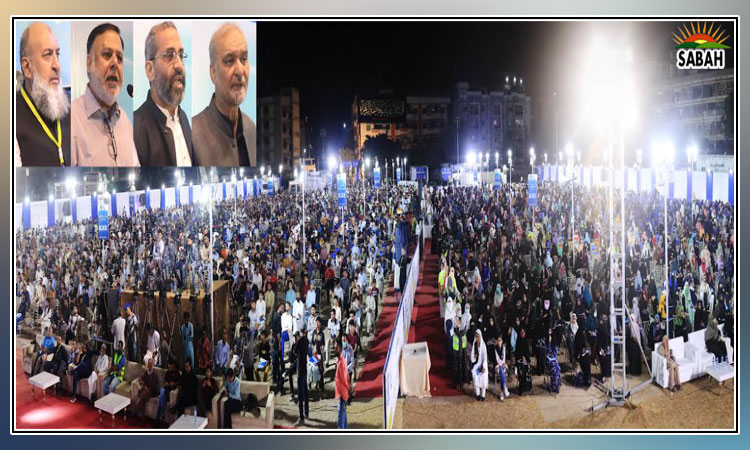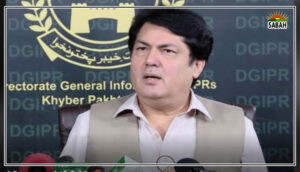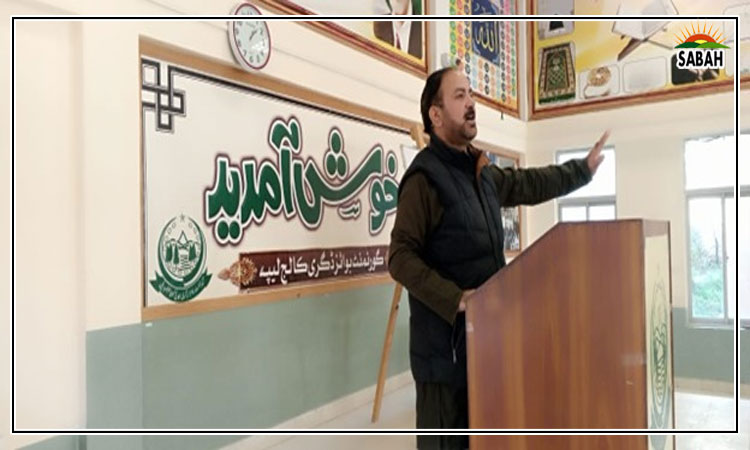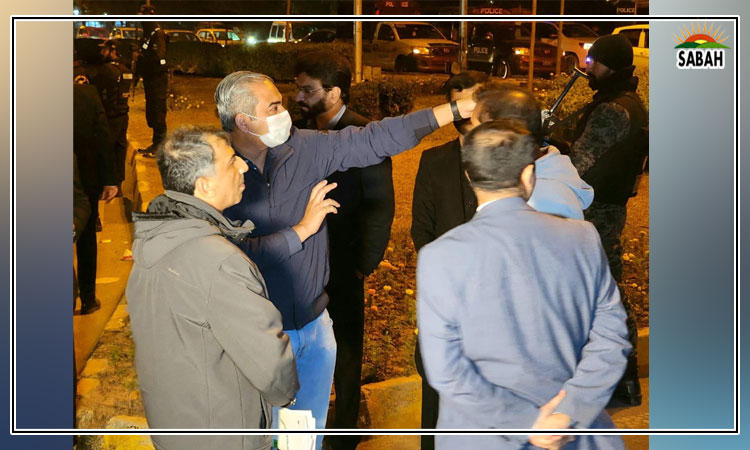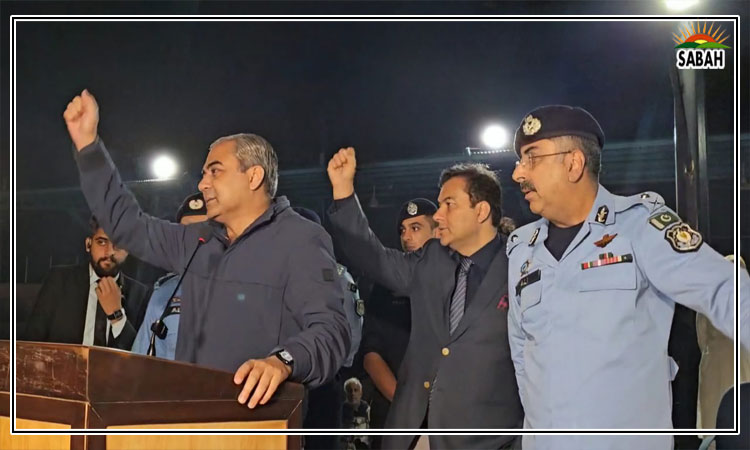Broader collaborations among public, int’l organizations key to achieve health rights: Speakers
ISLAMABAD, April 06 (SABAH): The Speakers at a webinar on World Health Day demanded broader collaborations among the government, private, civil society and international organizations to achieve health rights for all.
The Sustainable Development Policy Institute (SDPI) organized a special webinar on World Health Day under the theme “My Health My Right”. In his opening remarks, Dr. Abid Qaiyyum Suleri, Executive Director SDPI, said the theme for this year’s serves as a clarion call reminding us of the intrinsic rights of every individual as health and well being. He added that the challenges in health sector are clear in Pakistan that demands to broaden the discussion on health.
“It takes us beyond healthcare encompassing physical, mental, social well being, right to earn livelihood and get nourished food and also encompasses our right to clean drinking water and WASH,” he said.
Dr. Suleri mentioned that after 18th Amendment health was a provincial matter. “Although constitution talks of people unable to earn their livelihoods due to infirmity or sickness and I would suggest that it was not all about infirmity and sickness as health is a right and we need to start a dialogue a shared conservation between the federal and provincial governments and the civil society to make health more accessible and resilient for provision of a healthy lifestyle,” he added.
Moreover, citizens should be proactive stewards of their health and advocating for their rights and contributing to a health conscious society, he added.
Dr. Razia Safdar, Health Policy Advisor, SDPI presented a detailed presentation on the healthcare landscape and its associated bottlenecks. She said right to health is not related to health but other human rights and a legal binding commitment of the governments globally which was also part of the international human rights declaration. She also shed light on the human rights treaties discussing health and human rights based approach towards access to health.
She also presented brief audio, video display on civil society comments on World Health Day.
Dr. Ali Razaq, CEO Punjab Health Initiative Company said the Punjab government is fulfilling its commitment to achieve universal health coverage as its budgetary allocations and different projects providing healthcare facilities are indicative of its commitment. He said the health insurance program and health card scheme has played a pivotal role in improving health coverage in Punjab. However, the Sehat Sahulat Program led to the growth of the private sector that catered for 110 million population with a budget of Rs468 billion with a 100 percent increase for past three years in budget. The project, he said had ensured 15% health in terms of percentage in the population with 51% male, 49% female and 43% children as its beneficiaries. Under the initiative, there are 206 public hospitals with a total of 43,550 beds and 160 private hospitals with a total of 23,055 beds, whereas over 6.5 million patients have availed treatment worth Rs 151 billion under the Sehat Sahulat Program since its inception in 2016, he added. “The private sector hospitals have been reduced and only Pakistan Healthcare Commission registered are part of Sehat Sahulat program because quality assurance in the service is the top priority,” he mentioned.
Dr. Shahzad Ali Khan said the general public feels handicapped in terms of proper treatment and biased urban approach towards treatment facilities amassed in urban areas further aggravates the crisis. He added that most of the healthcare is pro urban and poor health services are rendered for the poor. “The topic for today has been under great debate for past many years and SDPI has always taken lead in taking health as a right,” he said.
Dr. Shahzad noted that there was a need of consistent advocacy on health as a right. He also noted that there was a great leadership crisis in health sector advocacy realm that needs to have consensus and unity to draw leadership as it would then ensure that policy makers would pay heed to our policy proposals.
Mansoor Riaz, Senior Program Officer, Pathfinders International presented a brief account of his organization’s four decades long experience in women health advocacy and its current initiatives in the four provinces including Gilgit Baltistan on water conservation, kitchen gardening, recycling and postpartum planning.
Dr. Jasim, Social Expert, Planning Commission said unless the government incorporates the concept of health across the board then it can achieve the objective. He added that the fundamental rights are ensured from the contributions of the communities like how the fiscal system supports it. Moreover, supporting rural economies taking into the concept of health is the need of the time, he added. “Sehat Sahulat Punjab is based on public money and is a huge project and it needs to be channelised across all financial channels in one stream to ensure focused and targeted spending to reduce burden on the tertiary healthcare,” he added. Moreover, youth employment and education was critical to enhance promotion of awareness and education on a healthy and properly tamed healthy lifestyle, he added.


